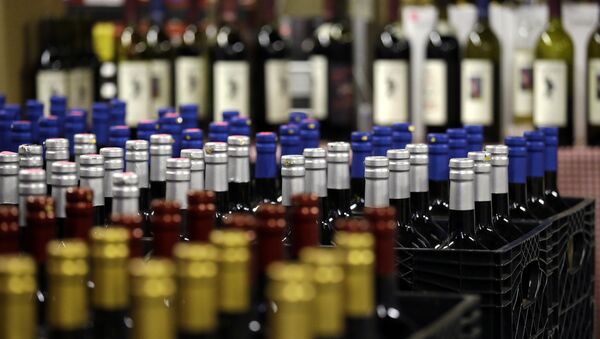California wines made in the years following the Fukushima nuclear plant disaster contain the isotopes from the accident's fallout, researchers at the French National Center for Scientific Research (CNRS) reported. Scientists studied the samples of red and rosé wines made from the grapes harvested between 2009 and 2012 and found traces of Caesium-137 that builds up as a result of a nuclear reactor's operation.
The scientists resorted to low-background gamma spectrometry in order to detect the traces as the wine contained very low amounts of isotopes. According to CNRS' research, the amount of Caesium in the bottles presented no danger to human health and the level of the wine's radioactivity was lower than natural radiation.
READ MORE: Japanese Citizens Reject Government Plan to Use Soil Contaminated by Fukushima
Several reactors at Japan's Fukushima nuclear power plant suffered a meltdown after a huge 15-meter high tsunami wave hit it and knocked out the reactors' coolant systems. The disaster led to several radioactive fallouts into the atmosphere and into the water. A certain area around the plant still remains uninhabitable.

